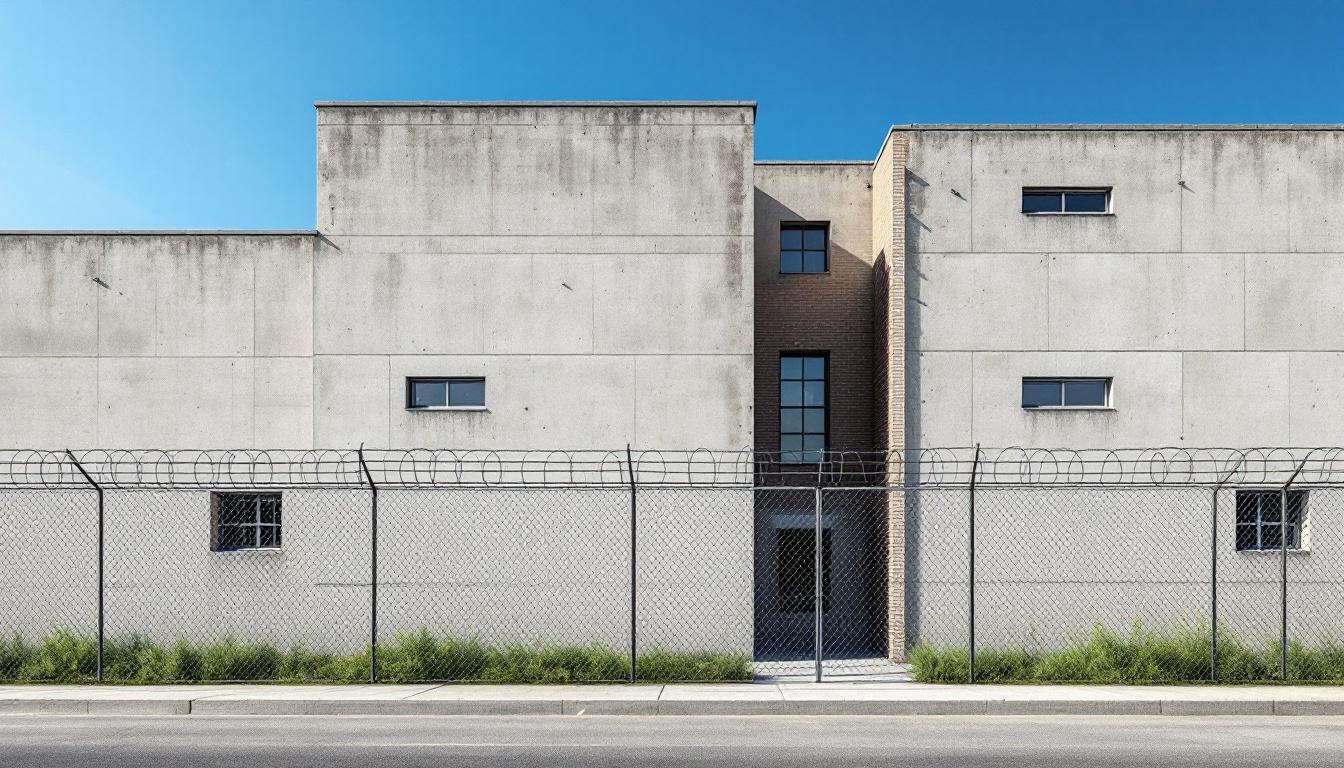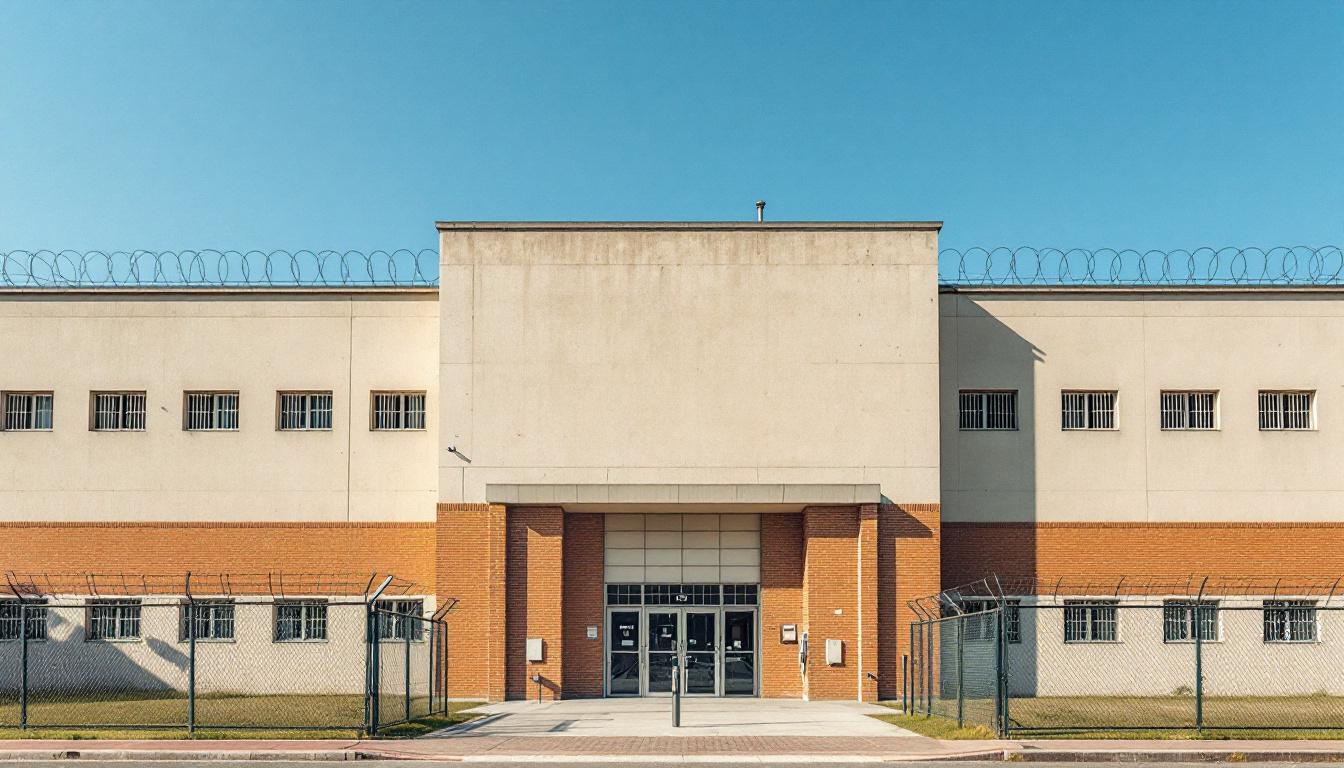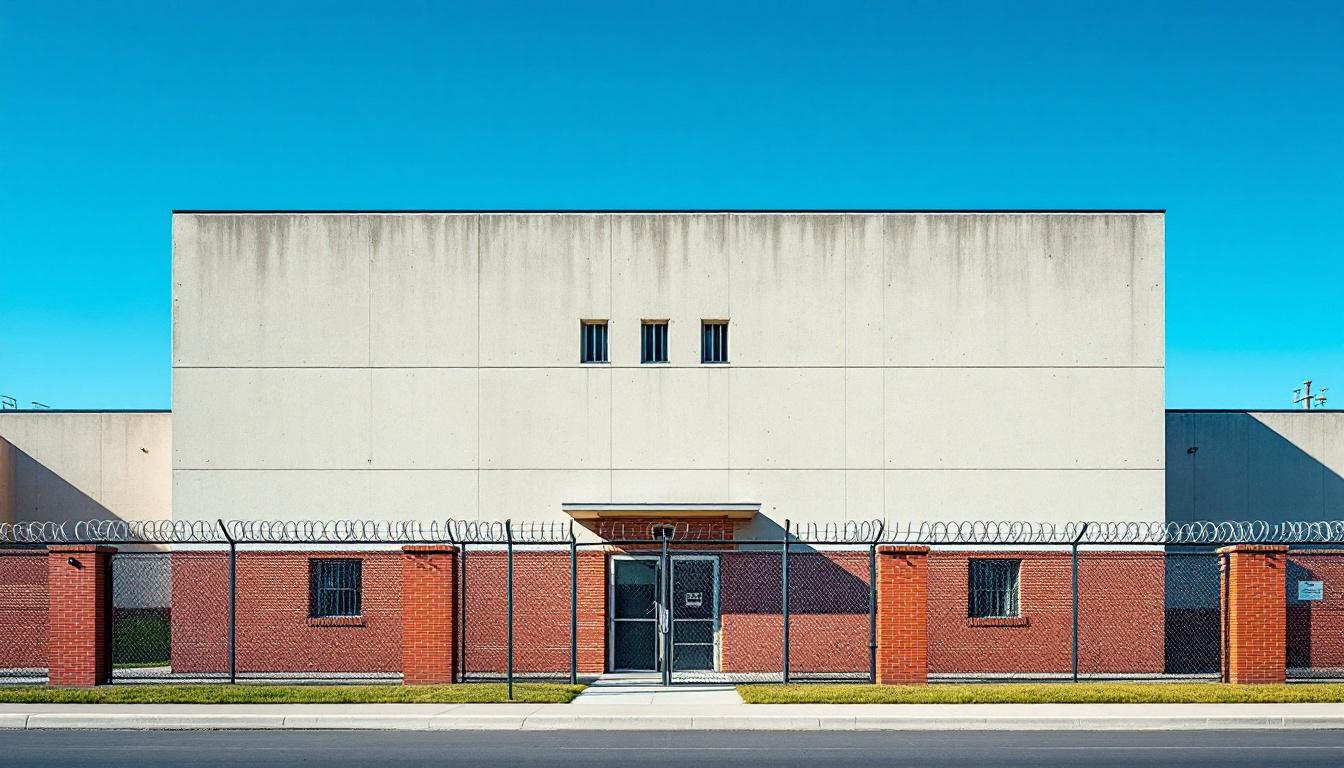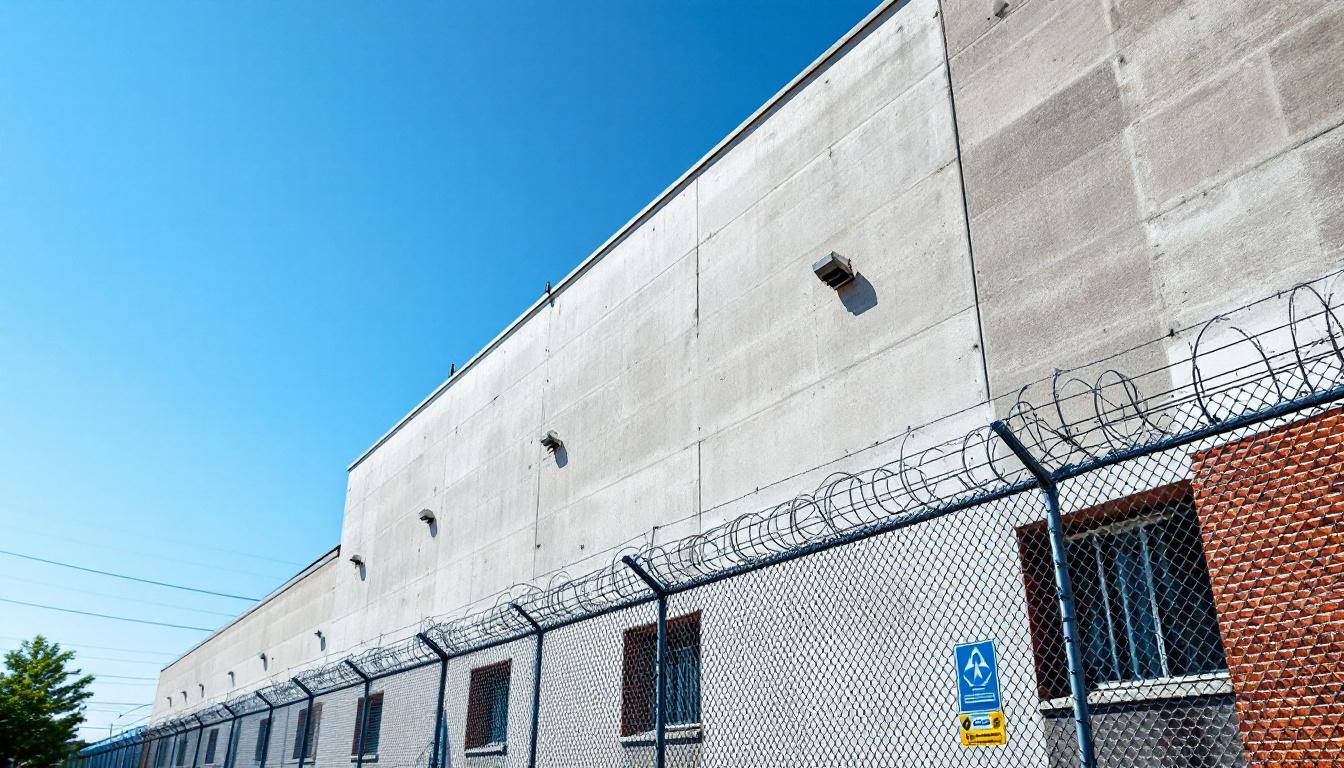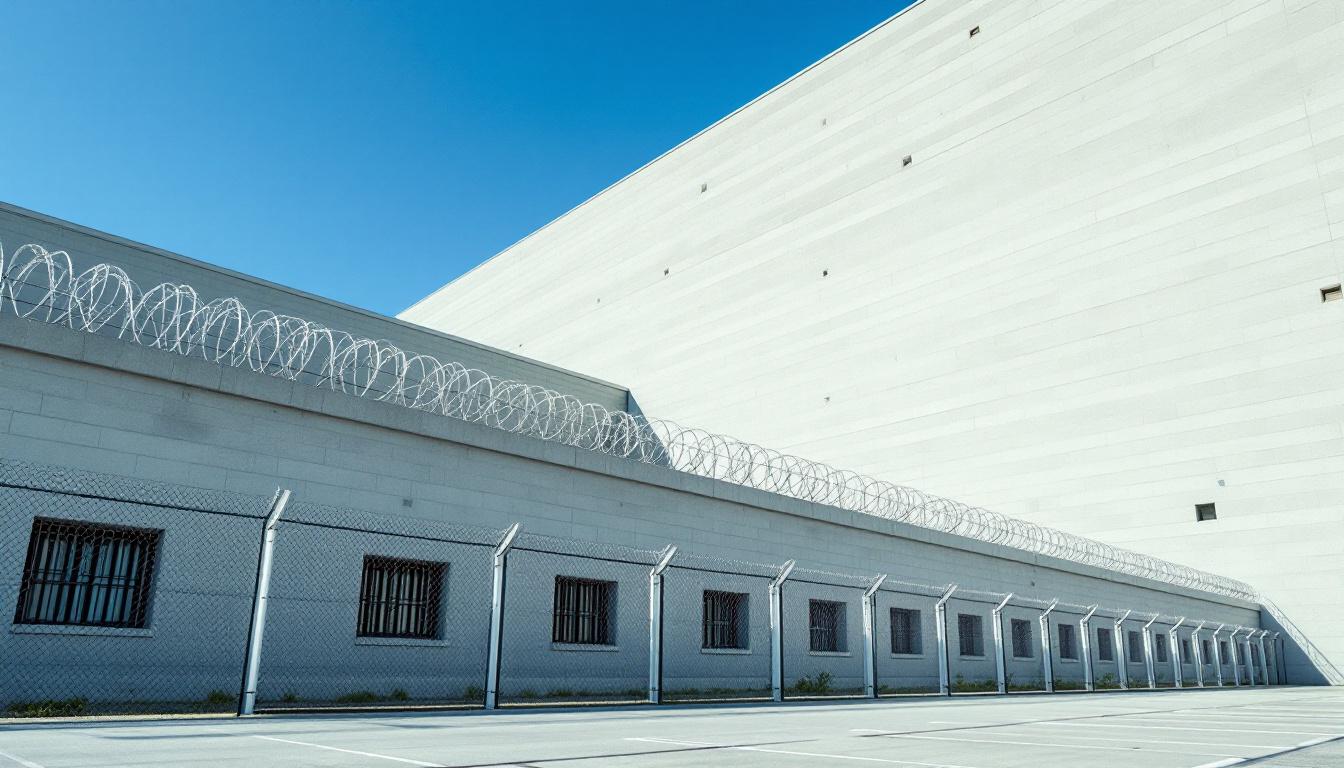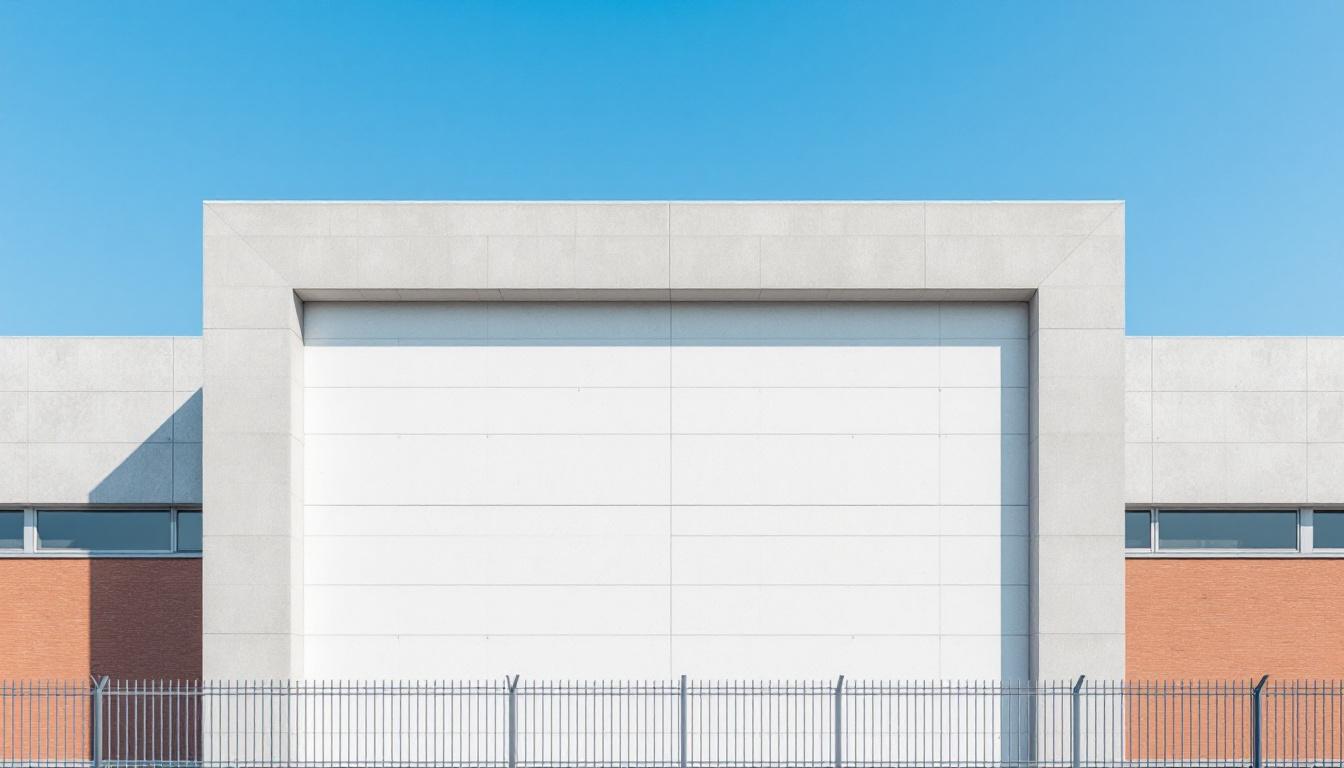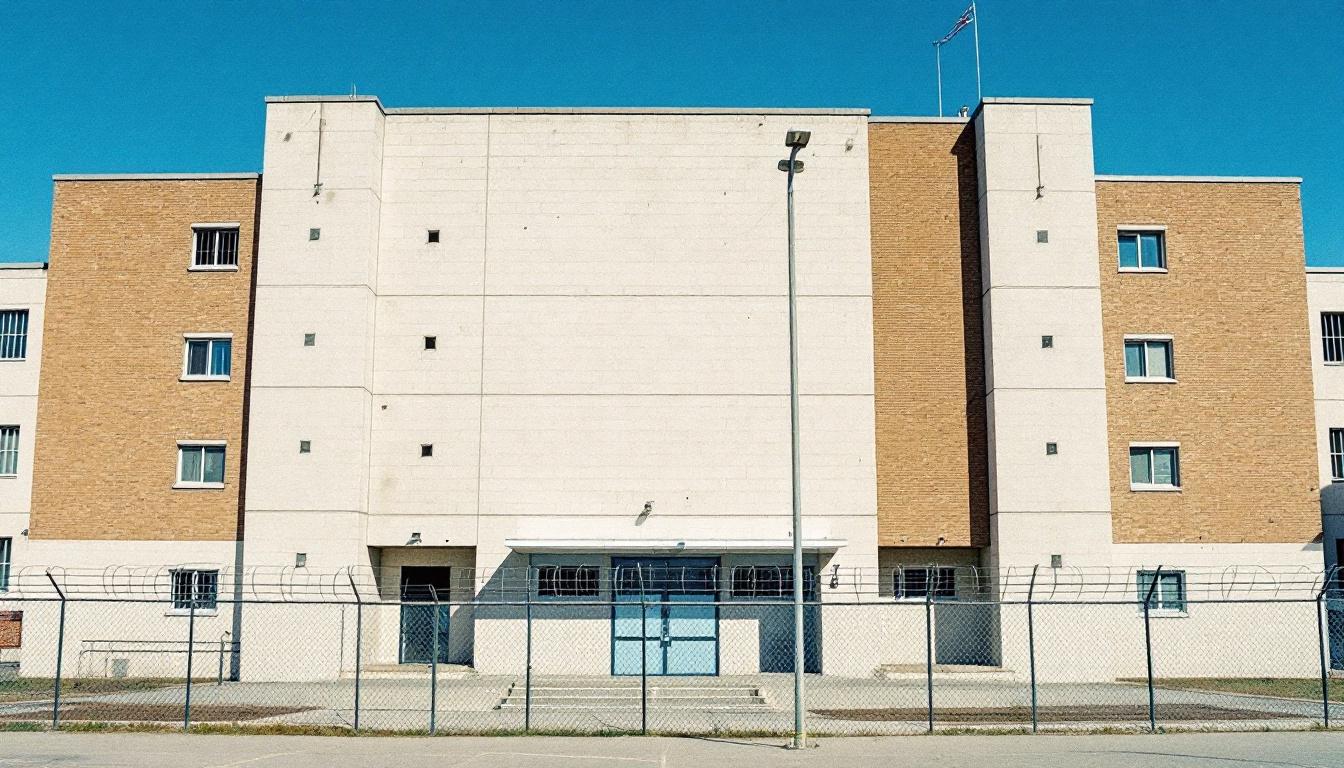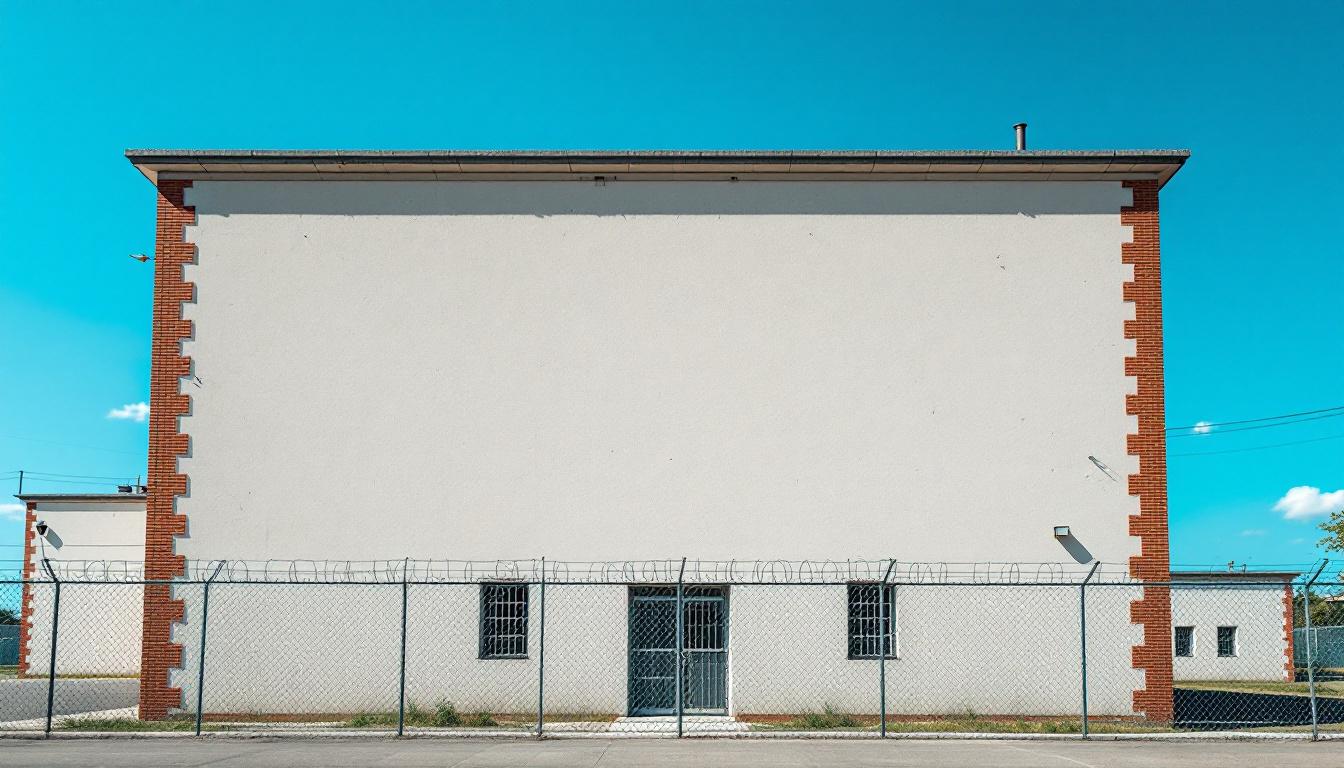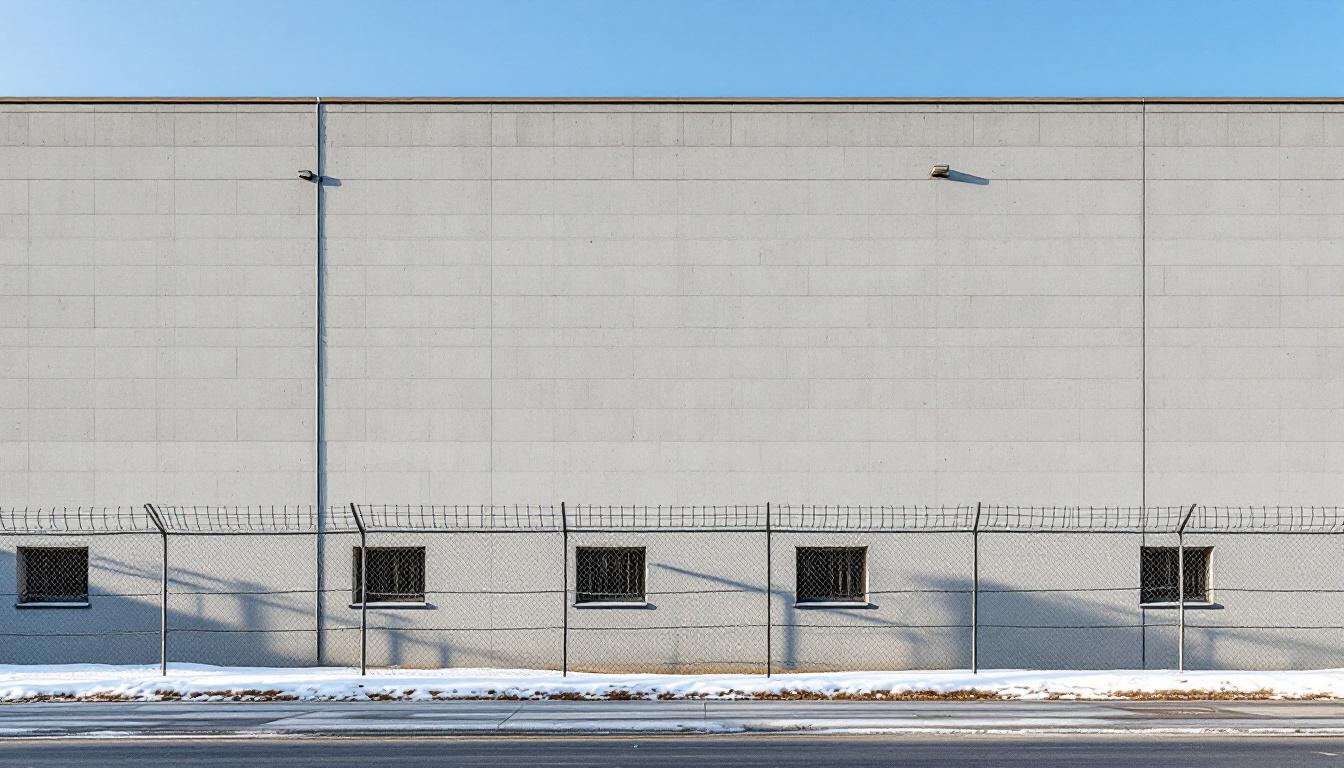
Quick Navigation
How to contact an inmate at Metro-Davidson County Detention Facility
This comprehensive guide will walk you through how to connect with an inmate at Metro-Davidson County Detention Facility. Follow the steps below to find an inmate and send letters and photos:
- Search for the inmate using our search tool below
- Create your account or log in to Penmate
- Write your message (up to 6,000 characters)
- Send instantly - inmates receive printed copies daily
Find an Inmate
Search for an inmate to start communicating today
Tip: You can search by first name, last name, or inmate ID number
To contact a person at Metro-Davidson County Detention Facility start by searching for the person on the official facility website. Perform a search by following these steps:
- Step 1: Enter their first name and last name into the search form and click "Search"
- Step 2: Locate their inmate record
- Step 3: Write down their Inmate ID and any housing information provided
Important! Be sure to enter the person's full name. Nicknames should not be used.
How to Send Messages to Inmates

You can use your phone or computer to send emails, letters, and photos to an inmate. Messages are sent electronically to inmate tablets or kiosks at the facility. If you would like to send a message, start by searching for an inmate at Metro-Davidson County Detention Facility.
Sending Photos and Postcards

A great way to send love and support to a loved one at Metro-Davidson County Detention Facility is to send photos and postcards. It only takes a few minutes to send photos from your phone and it makes a huge difference. You can also mail postcards with words of support and inspiration, or design your own postcard for special moments like birthdays and holidays.
Important! Be sure not to send any explicit photos or they may not be approved by the facility. You can also use a photo printing app like Penmate to make sure your photos are printed at the correct size (4x6 or 3x5) and are mailed according to the rules and regulations of Metro-Davidson County Detention Facility.
Frequently asked questions about Metro-Davidson County Detention Facility
-
How long does it take to deliver a message?
If you're sending an email message your letter is usually delivered within 24-48 hours. For messages sent via mail you should expect delivery within 3-7 days. All messages will need be approved by Metro-Davidson County Detention Facility.
-
How much does it cost to send a message to Metro-Davidson County Detention Facility?
You can send a message free using your phone or mail a message via USPS for the price of a $0.60 stamp and envelope. You can also purchase credits or e-stamps from services starting at $1.99.
-
What services can I use to contact an inmate at Metro-Davidson County Detention Facility?
Penmate
You can use Penmate to send letters and photos to an inmate from your phone. It's an easy way to stay in touch during your loved one's incarceration. Use the inmate locator to find an inmate's location and contact information, then you can send messages within a few minutes.
Securus messaging
Securus may be another option for communicating with an inmate at Metro-Davidson County Detention Facility. You can create a friends and family account and purchase credits to send messages. All messages will be reviewed and must be approved by the facility.
JPay
Some county jails and state prisons may support sending messages with JPay. You must register an account with the system, find your loved one, and purchase stamps to send messages. For some locations you can also attach photos.
Smart Jail Mail
You may also check if Smart Jail Mail is available at Metro-Davidson County Detention Facility. Smart Jail Mail is operated by Smart Communications and has contracted with some state and county jails. After purchasing credits, your messages and photos are sent to the facility, printed out, and then handed out to your loved one.
-
What is the mailing address of Metro-Davidson County Detention Facility?
Mailing address:
Metro-Davidson County Detention Facility
5115 Harding Pl
Nashville, TN 37211
Phone: (615) 831-7088Business hours:
- Monday: Open 24 hours
- Tuesday: Open 24 hours
- Wednesday: Open 24 hours
- Thursday: Open 24 hours
- Friday: Open 24 hours
- Saturday: Open 24 hours
- Sunday: Open 24 hours
-
What are the visiting hours at Metro-Davidson County Detention Facility?
Visiting hours at Metro-Davidson County Detention Facility vary by housing unit and security level. Generally, visits are scheduled on weekends and holidays, with some facilities offering weekday visits. Contact the facility directly at (615) 831-7088 or check their website for the current visiting schedule. Visits typically last 30-60 minutes and must be scheduled in advance.
-
What items are prohibited when sending mail to Metro-Davidson County Detention Facility?
Prohibited items typically include: cash, personal checks, stamps, stickers, glitter, glue, tape, staples, paperclips, polaroid photos, musical or blank greeting cards, hardcover books, magazines with staples, and any items containing metal or electronics. Only send letters on plain white paper with blue or black ink. Photos must be printed on regular photo paper (no Polaroids). Always check with Metro-Davidson County Detention Facility for their specific mail policies.
-
How do I send money to an inmate at Metro-Davidson County Detention Facility?
You can send money to an inmate at Metro-Davidson County Detention Facility through several methods: 1) Online using JPay, Access Corrections, or the facility's approved vendor, 2) Money orders mailed directly to the facility with the inmate's name and ID number, 3) Kiosks located in the facility lobby, or 4) Over the phone using a credit or debit card. Fees vary by method, typically ranging from $2.95 to $11.95 per transaction.
-
Can I schedule a video visit with an inmate at Metro-Davidson County Detention Facility?
Many facilities now offer video visitation as an alternative to in-person visits. At Metro-Davidson County Detention Facility, video visits may be available through services like Penmate, Securus Video Connect, GTL, or ICSolutions. Video visits typically cost $10-20 for 20-30 minutes and must be scheduled in advance. You'll need a computer or smartphone with a camera and reliable internet connection. Contact the facility for their specific video visitation policies and approved vendors.
-
What identification do I need to visit an inmate at Metro-Davidson County Detention Facility?
All visitors must present valid government-issued photo identification such as a driver's license, state ID, passport, or military ID. Minors must be accompanied by a parent or legal guardian who can provide the minor's birth certificate. Some facilities require visitors to be on the inmate's approved visitation list, which may require a background check. Contact Metro-Davidson County Detention Facility for specific ID requirements and visitor approval procedures.
-
How can I find out an inmate's release date?
To find an inmate's release date at Metro-Davidson County Detention Facility, you can: 1) Use the online inmate search tool if available, 2) Call the facility's records department, 3) Contact the inmate's case manager or counselor, or 4) Have the inmate provide this information during a call or visit. For privacy reasons, some facilities only release this information to immediate family members.
Facility Overview
Contact Information
Metro-Davidson County Detention Facility5115 Harding Pl
Nashville, TN 37211
Phone: (615) 831-7088
Official Website

About Metro-Davidson County Detention Facility
Through comprehensive intake processing and structured programming, Metropolitan Detention Facility, TN operates as a vital component within Nashville's correctional infrastructure, serving individuals awaiting trial and those serving shorter sentences. The facility's operational framework emphasizes systematic approaches to both security protocols and rehabilitative services, reflecting the broader commitment to public safety while addressing the developmental needs of those in custody.
Located within Davidson County's urban landscape, this TN correctional facility typically provides individuals services that may include educational programming, substance abuse counseling, and vocational preparation opportunities. The detention center's geographic positioning within Nashville allows for coordinated efforts with local courts, legal representatives, and community-based organizations that often support reentry planning. Processing procedures generally encompass medical screening, classification assessments, and program placement evaluations designed to match appropriate services with individual circumstances and legal status.
The facility's role within Tennessee's correctional system involves managing pre-trial populations and individuals serving sentences that fall within detention center parameters. Rehabilitation programming may include life skills development, anger management courses, and educational services aimed at addressing underlying factors that contribute to criminal behavior. Through structured daily routines and supervised programming, the facility works to maintain institutional security while providing opportunities for personal development and preparation for eventual community reintegration.
Programs & Services
A multifaceted approach to personal development forms the foundation of opportunities at Metropolitan Detention Facility, TN, where individuals can access a comprehensive array of services designed to address diverse needs and goals. The facility typically recognizes that meaningful change often requires multiple pathways for growth, offering programming that spans educational advancement, vocational skill-building, and therapeutic support. This holistic framework may provide individuals with various avenues to develop new competencies while addressing underlying challenges that contributed to their current circumstances.
Educational services often serve as a cornerstone of the facility's offerings, with opportunities that may include basic literacy instruction, GED preparation, and continuing education coursework. Furthermore, vocational programs typically provide hands-on training in practical skills that can translate directly to employment opportunities upon release. These vocational opportunities often include specialized instruction in barbering and cosmetology, which may offer individuals the chance to develop marketable skills in growing service industries while building confidence through creative expression.
The facility's support services typically encompass both therapeutic and community-oriented opportunities designed to foster personal growth and social responsibility. Cognitive behavioral therapy sessions may help individuals develop healthier thought patterns and coping strategies, while faith-based programs often provide spiritual guidance and community connection for those seeking such support. Additionally, creative writing opportunities may offer individuals a constructive outlet for self-expression and reflection, and community service initiatives typically allow participants to contribute positively to their surroundings while developing a sense of civic responsibility and personal accomplishment.
Daily Life & Visitation
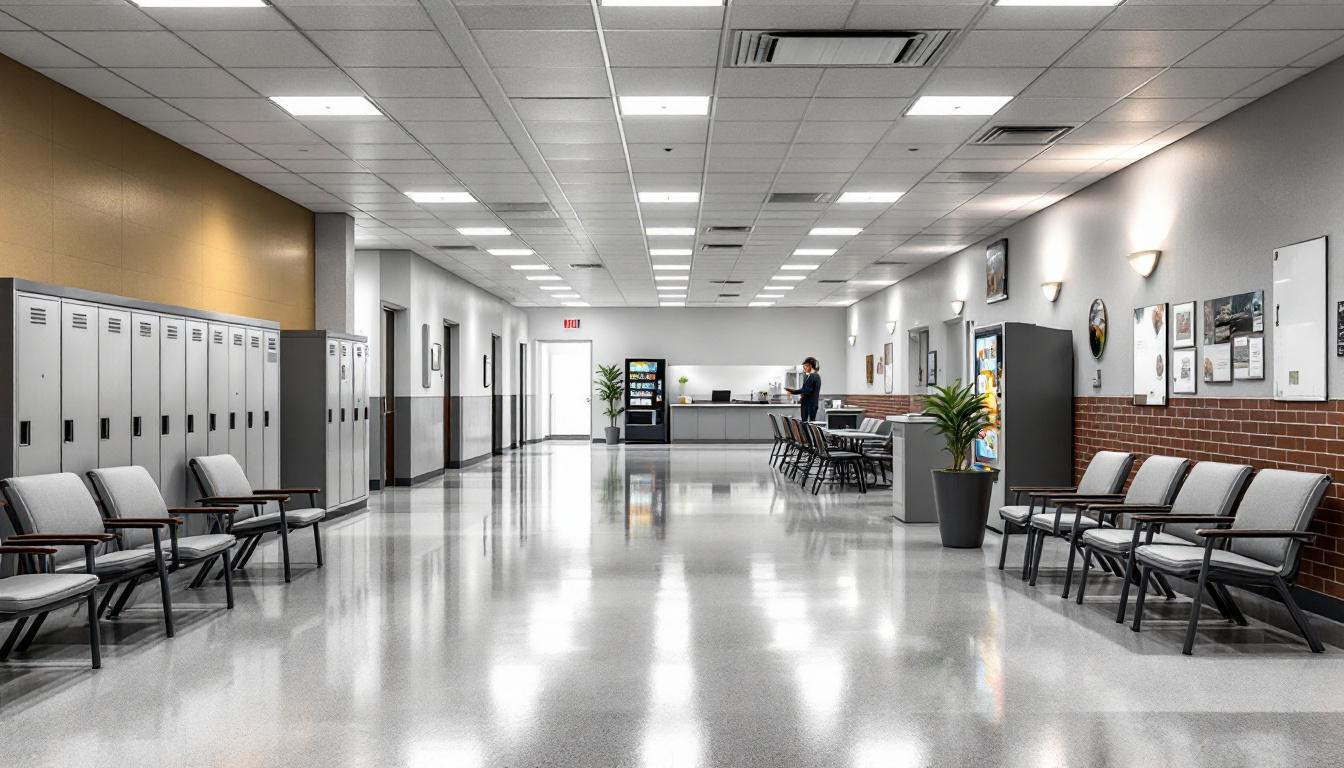
The steady rhythm of count times punctuates each day, creating a predictable framework that individuals at Metropolitan Detention Facility actively navigate while adapting to their temporary circumstances. At present, the facility operates on a structured schedule that typically begins with early morning wake-up calls, followed by organized meal service and housing unit assignments. Daily routines generally include multiple security counts, scheduled programming periods, and designated times for personal activities, though these may vary based on housing classification and individual circumstances.
Living accommodations typically consist of shared housing units where individuals are assigned to cells or dormitory-style arrangements depending on their classification level and available space. Furthermore, personal property allowances generally include basic hygiene items, limited clothing, and approved personal effects that can be stored within designated areas. The facility usually provides bedding, uniforms, and essential supplies, while individuals may access additional items through the commissary system when funds are available. Although space is limited, housing areas often include common areas where individuals can interact during approved recreation periods.
Structured programming schedules typically offer various activities designed to provide productive use of time during detention. These may include educational classes, vocational training opportunities, library access, and recreational activities when staffing and security considerations permit. Although visitation policies are generally restrictive due to the facility's detention nature, individuals can typically maintain contact with family members through scheduled visits, telephone calls, and written correspondence, subject to security screening procedures. Work assignments within the facility often provide individuals with opportunities to contribute to daily operations while earning modest compensation, though availability may depend on security classification and facility needs.
Ready to Connect?
Start communicating with your loved one today
Search for an Inmate
